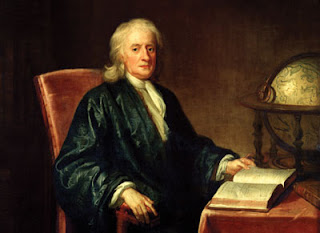Robert Boyle : Science and Theology
In his book, Some Considerations Touching the Usefulness of Experimental Natural Philosophy, Boyle defends the study of experimental science against the attack of several Divines who, for noble motives, "deterre men from addicting themselves to serious and thorough Enquiries into Nature, as from a Study unsafe for a Christian, and likely to end in Atheisme.46 Although he had a zeal for the advancement of Christianity and "had much rather have men not Philosophers then not Christians,47 he argued that one could engage in modern science and yet be a true Christian. His thesis was that the study of science would cause Christians to glorify God more, aid in the understanding of Scripture, and produce an apologetic for Christianity. Using Scripture to support his position, he argued the following points.
(1) God had two main goals in his work of creation: (a) the manifestation of his glory (Ps. 19:1, Prov. 16:4, Rom. 11:36) and (b) the good of human beings who were to subdue creation (Gen. 1:28-29) and use it for their benefit (Gen. 1:14-16; Isa. 45:28). Therefore, the study of creation should lead to a doxology of praise to God. It draws people to God, not away from him.48
(2) The knowledge of science actually aids in the understanding of the Bible. The study of certain animals will lead to a greater comprehension of the biblical texts which speak of the characteristics of these animals (e.g. the serpent of Genesis, the four beasts of Daniel's prophetic vision, and the allusions of Jesus to serpents and doves).49
(3) Three attributes of God are seen in a scientific study of nature. (a) His greatness is seen in the vastness of creation. Even if one discards the calculations of the Copernicans and prefers the more modest computations of the Ptolomeans, one must conclude with the Psalmist, "Great is the Lord, and greatly to be praised; and his greatness is unsearchable.50 (b) His wisdom is also seen in creation.
When with bold telescopes I survey the old and newly discovered stars and planets Y when with excellent microscopes I discern Y the unimitable subtility of nature's curious workmanship; and when, in a word, by the help of anatomical knives, and the light of chymical furnaces, I study the book of nature Y I find myself oftentimes reduced to exclaim with the Psalmist, How manifold are Thy works, O Lord! in wisdom hast Thou made them all!51
(c) The goodness of God is revealed when the means of God's sustaining of humankind is comprehended. His benevolence is observed in the development of medicines from creation52 Therefore, the study of science should be urged upon all Christians because it increases piety and praise for the Creator rather than leading to atheism
Excerpt from "http://www.asa3.org/ASA/PSCF/1997/PSCF3-97Woodall.html"
Excerpt from "http://www.asa3.org/ASA/PSCF/1997/PSCF3-97Woodall.html"


Comments
Post a Comment